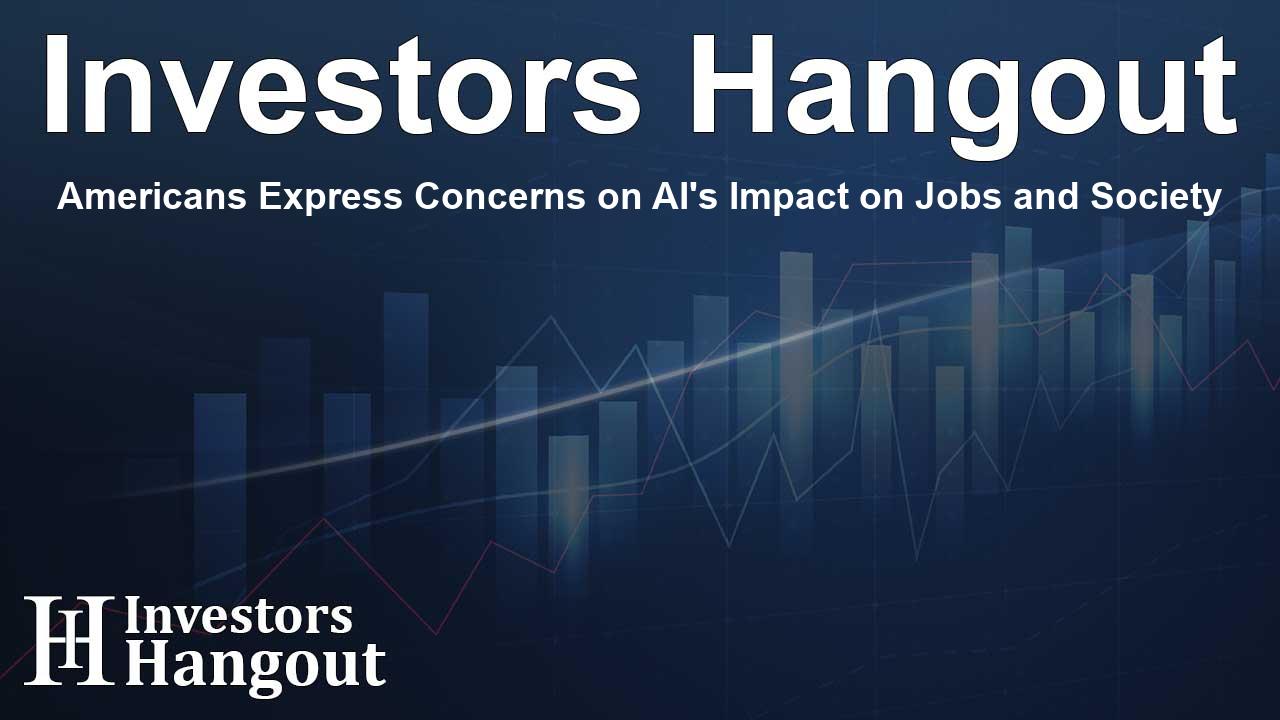Americans Express Concerns on AI's Impact on Jobs and Society

Overview of American Concerns Towards AI
Artificial intelligence (AI) continues to evoke significant apprehension among citizens, with recent polling data illustrating a broad unease regarding its implications. A new survey indicates that a staggering 71% of U.S. adults express concern that AI technologies might lead to permanent job losses. This statistic underscores a growing sentiment that, as automation capabilities expand, many traditional roles could become obsolete.
Worries Extend Beyond Employment
Political and Military Concerns
Concern over AI doesn’t merely pertain to employment; it extends into the political realm as well. Approximately 77% of participants in the survey worry AI could exacerbate political instability. Additionally, nearly half of those polled believe the government should refrain from using AI for military targeting operations. Such sentiments reflect a critical perspective that merges technology with ethical considerations, highlighting the need for responsible governance.
Energy Consumption and Social Relationships
Implications on Electricity Usage
Another significant worry voiced by 61% of respondents relates to the substantial energy required to power AI systems. Concerns about environmental sustainability and resource management have prompted discussions about the long-term viability of AI technologies. Furthermore, about two-thirds of people fear that reliance on AI will lead individuals to replace human interactions with digital companions, potentially eroding social relationships.
Shifts in the Labor Market
The ongoing dialogue among business leaders acknowledges that AI is already disrupting the labor landscape. Prominent CEOs have noted that AI is taking on roles traditionally deemed monotonous or repetitive. For example, Bill McDermott, CEO of ServiceNow Inc. (NASDAQ: NOW), highlighted that AI agents are now carrying out a significant portion of customer service tasks and generating software at remarkable speeds without typical human needs, such as breaks or benefits.
Job Market Transformations
Trends in Job Losses
Analysts at Goldman Sachs (NYSE: GS) are also sounding alarms about job losses, especially among younger tech workers. Data shows that unemployment for tech employees aged 20 to 30 has surged dramatically—a reflection of broader trends fueled by AI advancements. Estimates suggest that AI could replace 6% to 7% of jobs nationwide over the coming decade.
Economists Weigh In
Economist Craig Shapiro recently voiced his concerns regarding the rapid pace of AI integration into various sectors. He suggests that traditional economic responses, such as interest rate cuts by the Federal Reserve, may prove ineffective against the structural job shifts caused by automation. Shapiro and others advocate for a reassessment of unemployment rates and the accompanying socio-economic framework.
The Balance Between Regulation and Innovation
While some leaders advocate for increased innovation and reduced regulation regarding AI, the discourse highlights a need for balance. Many industry leaders stress the importance of developing AI responsibly, ensuring that while society embraces technological efficiency, it does so while safeguarding human rights and employment opportunities. In a time marked by unprecedented technological change, a thoughtful approach is essential.
Frequently Asked Questions
What percentage of Americans fear job losses due to AI?
Approximately 71% of Americans are concerned that AI could lead to permanent job losses.
What are Americans' views on AI's impact on politics?
About 77% of those surveyed worry that AI could cause political instability.
How concerned are people about AI's environmental impact?
61% of respondents expressed concerns regarding the significant electricity consumption needed to power AI systems.
What role does AI play in the workforce according to business leaders?
Business leaders note that AI is now handling jobs that are often tedious, enhancing productivity without requiring human care or breaks.
Are there specific age groups affected by job losses due to AI?
Yes, younger tech workers, particularly those aged 20 to 30, have seen increased unemployment linked to the rise of AI.
About The Author
Contact Caleb Price privately here. Or send an email with ATTN: Caleb Price as the subject to contact@investorshangout.com.
About Investors Hangout
Investors Hangout is a leading online stock forum for financial discussion and learning, offering a wide range of free tools and resources. It draws in traders of all levels, who exchange market knowledge, investigate trading tactics, and keep an eye on industry developments in real time. Featuring financial articles, stock message boards, quotes, charts, company profiles, and live news updates. Through cooperative learning and a wealth of informational resources, it helps users from novices creating their first portfolios to experts honing their techniques. Join Investors Hangout today: https://investorshangout.com/
The content of this article is based on factual, publicly available information and does not represent legal, financial, or investment advice. Investors Hangout does not offer financial advice, and the author is not a licensed financial advisor. Consult a qualified advisor before making any financial or investment decisions based on this article. This article should not be considered advice to purchase, sell, or hold any securities or other investments. If any of the material provided here is inaccurate, please contact us for corrections.
